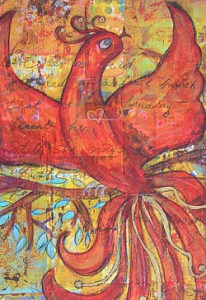 I love the following passage from Stephanie Dowrick’s new book, “Seeking the Sacred: Transforming Our View of Ourselves and One Another.” Since I’m in a weird place of waiting … to resume my normal life, her message of “let everything happen” resonated with me–to resist the urge, however strong it is, to control all the elements in one’s life.
I love the following passage from Stephanie Dowrick’s new book, “Seeking the Sacred: Transforming Our View of Ourselves and One Another.” Since I’m in a weird place of waiting … to resume my normal life, her message of “let everything happen” resonated with me–to resist the urge, however strong it is, to control all the elements in one’s life.
There have been times in my own life when my sense of the sacred and, even more particularly, my spiritual practices of meditation, prayer, study and journaling have been especially open, vulnerable or fierce. I am quite sure that I have been far more needy than usual of spiritual comfort in those periods but also more sensitive and aware of what is so continuously available to me. They have largely been tough times, occasionally desperate, and I would not wish to have any version of them in my life again. But I must also acknowledge with profound gratitude what poured forth within me and –or so it seemed—for me at those times. Without the sacred and a glimpse of my place within it, I truly do not know how I would have got through my own darkest and most mystifying passages and learned to see them as part of life but not all of it.
The visionary poet Rainer Maria Rilke puts it best. He speaks of a vision of life and of the sacred that’s vast and fearless enough to encompass beauty AND terror: “Let everything happen …” he writes, because Rilke knows and you and I also know that everything will happen, including death. And it is in how we think about that “everything” that our seeking of the sacred becomes truly transformative.
Perhaps this means relieving rather than denying suffering, or obsessing about it.
Perhaps it means pausing long enough to take in the holy in the most ordinary as well as the extraordinary.
Perhaps it means perceiving the ordinary and the extraordinary as one.
Artwork by the talented Anya Getter.
* Click here to subscribe to Beyond Blue and click here to follow Therese on Twitter and click here to join Group Beyond Blue, a depression support group. Now stop clicking.

